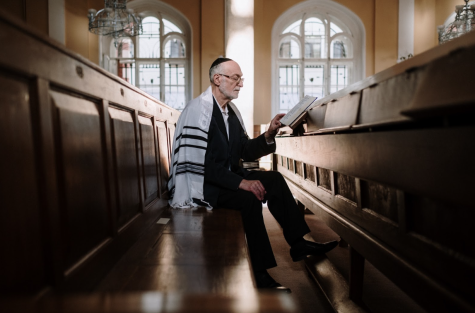Kaiser Permanente clinicians announce strike
October 24, 2019
The message during a candlelight vigil held by Kaiser Permanente mental health clinicians in front of the health care giant’s headquarters in downtown Oakland early Wednesday morning was quite clear: these patients didn’t have to die.
A crowd of approximately 35 clinicians, family members of former Kaiser patients and other community members, lit candles and displayed images of those who they say died by suicide after having mental health care denied by Kaiser.
The clinicians, represented by the National Union of Healthcare Workers, announced Wednesday that they’ll be striking from Nov. 11-15 to protest what they say is Kaisers lack of staffing that has led to a backlog of patients.
The union has been holding a 24/7 vigil outside the Kaiser headquarters at the Ordway Building in Oakland since earlier this month amid contentious negotiations over a new contract.
According to Dr. Mickey Fitzpatrick, a psychologist at Kaiser’s Pleasanton Medical Center, the combination of high turnover and influx of new Kaiser membership has led to a ballooned waiting list.
“People took their lives due to excessive wait times,” Fitzpatrick said.
Using his eight-year tenure at the health care conglomerate as an example, Fitzpatrick said when he first started working there, his office was staffed with around 25 people, and is currently at about 35.
But due to high turnover, including three peers who he said left in the last two months, an influx of at least four new patients a week keeps the backlog growing instead of declining.
Fitzpatrick said Kaiser has triedkeep up with the
demand by hiring new clinicians, but the turnover to bring them in and get them with new patients isn’t fast enough to keep up with the demand to see a therapist.
“The issue is not hiring fast enough and not training fast enough to keep up with Kaiser membership.”
An estimate provided by a clinician at the vigil said there are approximately 3,000 Kaiser members for every clinician on staff.
Kaiser representatives didn’t comment on Wednesdays vigil, but provided a statement from earlier this month by John Nelson, vice president of communications from Kaiser.
“We would like to bring these negotiations to a close and return our full focus to improving mental health for our members and the communities we serve, rather than on corporate campaigns and threats of work stoppages,” Nelson said.
“It is time for NUHW leaders to accept our proposals, which offer highly competitive wages and benefits and professional development opportunities, and are built on the same principles that guide all our labor agreements,” he said.
Nelson said Kaiser has hired hundreds of new therapists to address mental health care and is building dozens of new treatment facilities, among other investments.
“We cant do more without collaborating with our
therapists, and for that we need a new contract with NUHW,” he said.
















